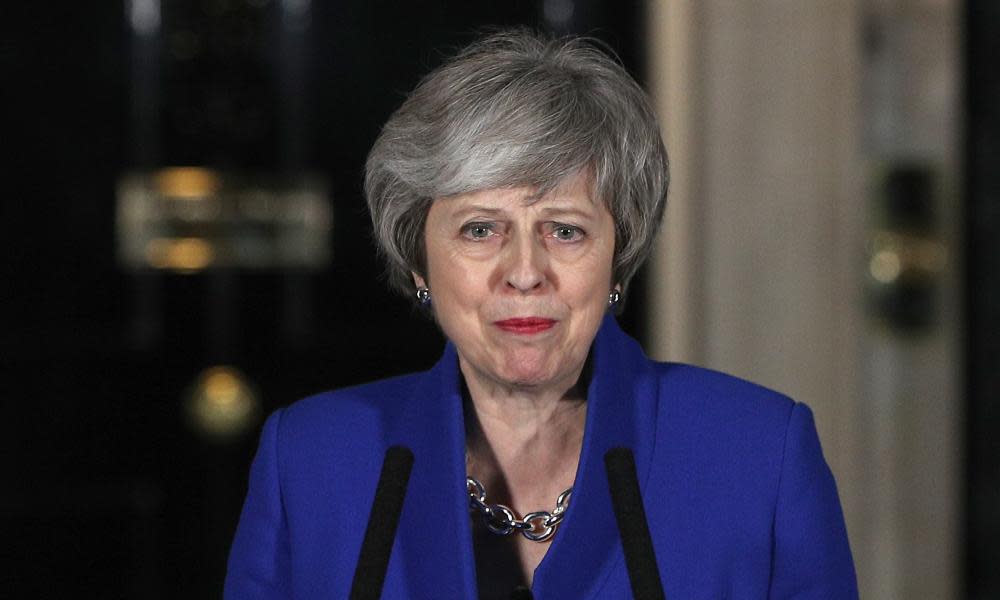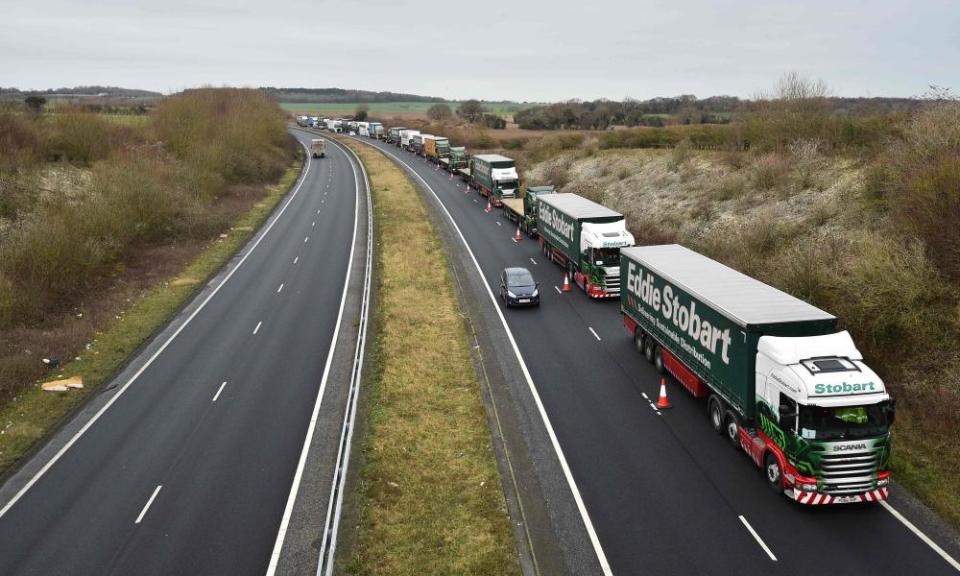We can’t leave a no-deal decision in the hands of wiped-out Theresa May

It is nothing less than despicable that, when our opposition and our government can clearly see they need to work together to get us out of this Brexit chaos, they are refusing to do so. And that means Theresa May could quite conceivably allow Britain to exit the EU without a deal, without any serious plans in place, and without reference to parliament. To prevent a no-deal outcome requires MPs to proactively replace this legal default position with something else.
If the court case I brought against the government over article 50 was about anything at all, it was about parliamentary sovereignty. That meant the will of the overwhelming majority of our MPs should prevail on the major issues of the day. It is their duty to represent their constituency, their party and the interests of the country. It is a tenet of representative democracy that MPs are not delegates for their constituents. This means that their decisions and actions are ultimately governed by putting the best interests of all their constituency before all else.
There is a distinct possibility, some would say a likelihood now, that in just 67 days May is going to allow the will of a tiny minority in her party to prevail and, without reference to anyone, set in place a no-deal Brexit. It will be her decision alone, and what a horrifying epitaph it will make.
So as we approach the current legally binding exit day of 29 March, let’s be clear what no deal means. There is a raft of some 800 pieces of legislation that needs to be passed to ensure leaving with no deal is legally executed. Some commentators say this is impossible in the time left. This is not strictly true as under the European Union (Withdrawal) Act, passed by MPs, May and her ministers have wide-ranging powers to amend the statute book – the so-called “Henry VIII powers”.
However, such a vast delegation of powers does entail constitutional risks – especially as they are predicated on the fact a deal has passed through parliament. The legislation appears silent on what happens if there is no deal, thus leading to constitutional and legal chaos.
There would be no transitional period. We would face immediate WTO tariffs, and border checks for customs and agricultural products. It is also important to remember the WTO works on consensus of its members – and there are 164 members and 23 observer governments. So if you think getting 27 countries to agree is tricky, think about this.
But the biggest problem for the UK will be to decide whether to apply EU tariffs to the rest of the world – effectively keeping agricultural protection – or no tariffs to anyone. And even if the EU, UK and Ireland do not want to put up a hard border between Ireland and Northern Ireland, WTO members will insist on checks.
Moreover, what is extremely worrying is that we would be leaving all the EU institutions and agencies when we do not have replacements in place – on aviation, energy, medicines, chemicals, banking and the environment.
Neither are we prepared on a practical level. The dress rehearsal we saw to prevent lorry congestion in Dover was an expensive shambles and shows the lack of joined-up thinking at the heart of the government. The plan had been for Manston airport to be used as a parking facility for 6,000 lorries, but only 89 – each driver paid £550 by the taxpayer – participated. What the Road Haulage Association said of that exercise holds good for government and private sector planning across the board: “Too little, too late.”

Among my contacts across the City there is still, generally speaking, a prevailing view that May will ultimately pull back from the brink: that is what Philip Hammond, the chancellor, has reportedly been briefing. But I don’t share this optimism. I would argue that the vast sums of money May has started to randomly spend in areas where she has suddenly realised there might be a problem show her clear intent. Dredging has already started at Ramsgate port to ease the pressure on Dover (when additional crossings will suddenly become a matter of life and death for people who depend on the import of drugs). It has also been announced that army reservists are being placed on standby. It seems the mantra in this Dad’s Army world we are now entering is “don’t panic”. It would be laughable if it weren’t all so tragically unnecessary.
Amid all the noise, May needs to listen to her more principled MPs such as Damian Green, Dominic Grieve, Kenneth Clarke, Justine Greening and her former adviser Lord Heseltine. And now more than ever the prime minister has to think beyond the traditional party divides: the current political argument has no respect for them whatsoever.
And she should talk to the people who we can still call our European partners. Indeed, I was in Paris last week – invited as a concerned citizen with some knowledge of the process we are involved in – to give evidence before the French senate’s Brexit working group. May has been unwilling to talk to people who don’t agree with her; but, behind the scenes, at events such as this, there has been genuine dialogue, and a desire to understand. These were people who know their stuff, who are actively reaching across their traditional lines, and my overwhelming sense, talking to them, is that they care about Britain and the future of its people every bit as much as those of France and the other member states.
Ultimately, of course, whether we leave the EU with no deal will be May’s decision. She does not have to heed anyone – not parliament, not the opinion polls, and not, unless she chooses to have another vote, the democratic will of the people who now know so much more about what leaving the EU means than when they voted two and a half years ago.
That is an awesome responsibility for anyone, let alone someone bruised and battered by treacherous colleagues, who’s suffered one humiliation after another and is no doubt physically exhausted by a gruelling few years in office. It is too much responsibility – way too much – for any one individual to bear. If those around the prime minister cannot clearly and decisively make a decision about how to end this chaos, let the people help.
• Gina Miller is the founder of endthechaos.co.uk

 Yahoo News
Yahoo News 
